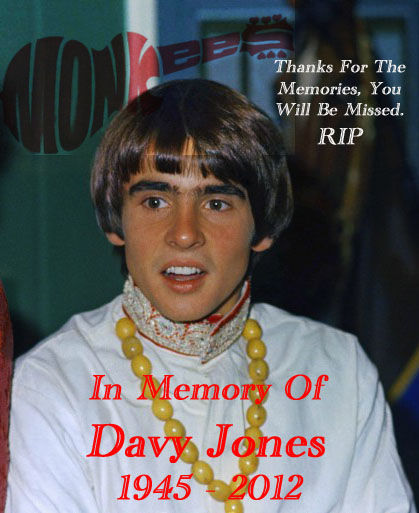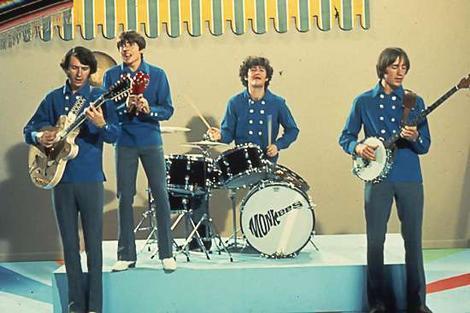 | ||||
| It Ain't Easy to Hide When You're Crippled with Guilt Inside! |
I wrote this entry right
before I met my husband and three years prior to the death of my mother, who at
the time was bedridden with breathing problems, Parkinson’s Disease, arthritis
and not to mention, worsening dementia. This was also the beginning of the end
of my father as I knew him. A few weeks earlier, he basically “checked out.” He
got his affairs in order—handed me important keys, papers and told me where to
find other important documents. He turned off his hearing aid and we have
barely had a normal conversation ever since then.
My father stands on the fourth step
that leads up to a medical clinic on Junction
Blvd. A boulevard of broken dreams. Set in the heart of Corona,
Junction Blvd.
is the main strip of an impoverished Hispanic neighborhood in Queens,
near Shea Stadium. It is a town immortalized by Paul Simon in Me and Julio Down by the School Yard as
well as the Lemon Ice King of Corona. It is now a
bleak block that is chock full of shops—mostly stores that hock inexpensive
goods. Along with the obligatory Mickey
D’s, Dunkin Donuts and Duane Reade, Junction Blvd. is filled with seemingly
endless amounts of check cashing places and signs like compra ahora, pague despues (Buy now. Pay later). In fact, one of
these signs flashes in a window in a store that hocks a variety of household items
along with Cingular phone packages. There are infinite amounts of cheap clothing
stores—featuring low cut halters, short minis as well as dresses with bold
prints and plunging necklines in their windows.
In the middle of the block, a short
stout Hispanic woman with long, jet black hair positions herself in front of a
giant Igloo cooler. She clutches a toddler in one hand and
a bottle of Poland Springs in the
other. “Agua, agua,” she cries out, desperately hawking her water. A bottle
that goes for un dolar. One dollar.
So insignificant to me—a nice, Jewish middle class teacher. But probably a big
deal to this seemingly poor immigrant woman.
My dad and I are in the heart of Corona in desperate
search of a notary public to authorize a form from the Banco Popular. It is a
paper that my dad needs in order to continue receiving his Medicaid. The
closest branch is here. There is a notary atop the clinic’s stairs. We have to
climb. We need to sit. We need to wait. One more step. One step at a time.
Two
emotional cripples. That is what my aunt always called my parents. Ever since
I can remember, my folks lay in bed the way Charlie’s grandparents did in Willie Wonka and the Chocolate Factory. That
was normal to me. Occasionally, they would arise just like Grandpa Joe when he
got up to help Charlie find the golden ticket at Wonka’s candy land.
But there was never any rainbow at
the end of my parents' daily journey. My mom would go to work as a high school
aide. My dad hasn’t worked in over thirty years. But he would get up. Go
downstairs. Stop at the donut shop for our muffins and crullers, buy the New York Times and be fully immersed
in the day’s news by the time I woke up.
My dad and I used to talk about everything from the pitfalls of
Reaganomics to the perpetual crisis in the Middle East
as well as my own struggles to make friends, get a boyfriend and fit in at
work.
Ooh, child. Things are gonna get
easier. Only now I am not a child. I am a forty year old woman still unmarried,
still trying to fit in and make sense of the world.
Why
the hell do we have to be here in Corona
today? Why do I have to schlep with you to this poor, God-forsaken
neighborhood? Why do I have to scour Junction Blvd. in
this blistering heat, roaming up and down like a lost puppy in search of a
notary? Why dad? Why do you need this bank statement from Medicaid? Why can’t you
be like everyone else’s father who works and retires with a nifty pension or
the pop who has amassed enough wealth to live comfortably in those golden
years? Why can’t you run your errands like you used to?
At least, my best friend—my Greek
best friend who may know as much Yiddish as both Jackie Mason and Alan King is
here to keep us company. She drove us here and waits with my dad as I zip up
and down Junction on a mission like Wylie Coyote trying to capture the Road
Runner.
The first bank I drag my father to
will not notarize his form.
“I am sorry. His passport expired,”
says the uncompassionate clerk with the tight bun, tight skirt and even tighter
ass.
“Yeah but he has his Medicaid card.
He’s got his social security card. Who do you think that is on his passport
photo—the man on the moon?” I angrily retort.
“I am sorry. Those are the rules.
You must have recent I.D. and his expired.”
Lo
siento to you to, bitch. Do you have any
idea of all the aggravation I have been through this week trying to secure
documentation for Medicaid? Do you care that the day before I traveled with my
dad to Manhattan to the URO so they could help
him reinstate his funds from Germany?
An Auschwitz survivor who lost eighty
members of his family during the war whose life always sucked. For the last
thirty years, he basically stayed at home and was unable to work crippled by
depression and in some instances, manic depression. Does anyone care that my father
can lose his Medicaid?
What’s
the matter with me? Why am I obsessing abut closing out this Banco Popular
account? Am I just so selfish wanting to close out an account whose funds I
could then take and escape to Bermuda or the Bahamas? No. Got to close out the account and get
the paperwork to Medicaid so my father can continue receiving home-care. This
stupid account puts him over the legal limit of funds the city permits people
who receive services.
My father, the emotional cripple now clings to
his cane and stairway railing is just a shadow of the man I once knew. He is no longer the man who read the Times
cover to cover, voraciously viewed CNN and MSNBC and despite being housebound
would engage in conversations for hours. The man who faced so much adversity in
his life. The man who said he never gave up hope was giving up.
“I can’t make it up the stairs. I
am too tired,” he says with weakened breath.
Instead of grasping his hand and saying, “Dad, it is okay.” I find myself taking hold of his arm and urging him, “Come on. You can do it.”
But instead of my father ascending victoriously
atop the stairs like Rocky Balboa, he lets go of the railing and falls down the
stairs, hitting his head on the hard floor. His hearing aid begins buzzing. He
sits momentarily motionless.
Is he
doing this on purpose? Like the way he lies in bed all the time staring at
the ceiling when I damn well know he can get up, put on the television, grab
the newspaper and begin a conversation like he used to. Like how he refuses to
take medication for his depression and instead chooses to remain in his pajamas
and sleep for most of the day and most of his life. Why is my father who used to know everything
about politics and the plight of New
York City’s homeless population now having not only
his body but also his mind grow weaker and feeble?
I am frozen with fear. I am crippled with guilt. What if my father
is seriously injured or worse? How would I ever live with the fact that in my
panicked attempt to settle bank business, I could have killed my father? Thankfully
there is no blood just a bump on his head. The clinic’s doctor flies down the
stairs trying to help. Asking in broken English, “Are you okay?”
I am not surprised that there is no
response. My father’s hearing aid is now
in my hands like all of his business. He sits up staring blankly ahead like he has
done for the past couple of years, cut off from the world. Disengaged and disinterested.
He recently disavowed having anything to do with Don, a close family friend who
was like a son. A man who never judged him. A man who was the only visitor to
his home besides me. In his paranoid state,
he has decided that Don tried to steal money for him when in reality; Don has
assisted us with financial matters and took care of all of my father’s bills.
Okay. This accident doesn’t seem to be so bad.
. But what if he has some internal
injury? Ooh, child… Please tell me
everything is going to be all right. Not only is my dad going to be okay but I
can finally get the happy ever after that I have so desperately wanted for all
of these years. Why can’t somebody please love me?
The ambulance finally arrives. After several hours in the ER’s trauma room,
he is deemed fit to go home. Go home to what? My mother whose frail body is now
ridden with arthritis, Parkinson’s disease and chronic lung disease. My mother
who, too is battling dementia and memory loss. My mother who lies on the bed
getting changed and diapered by the home health aide like she was a baby. Two
emotional cripples now have their bodies crippled with various physical
ailments. They have round the clock home-care. Thankfully, two of the kindest and caring
health aides assist them with all of their needs. In and out of emergency rooms.
Is a nursing home around the corner? To quote the Rolling Stones, “What a drag
it is getting old.”
All of this uncertainty. What kind
of life is this for my parents?
What kind of life is this for me?


















